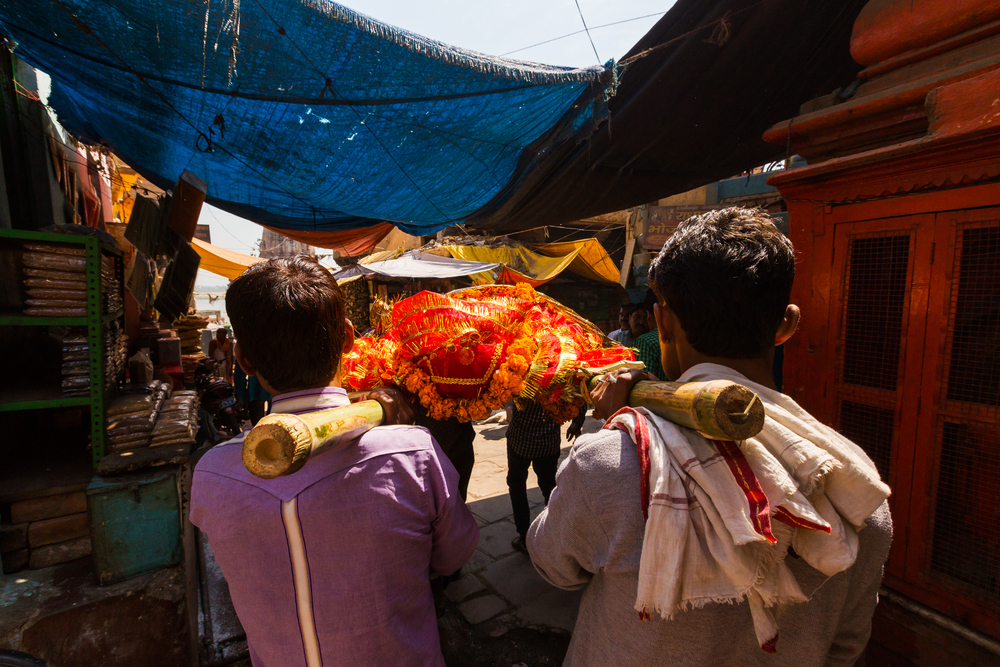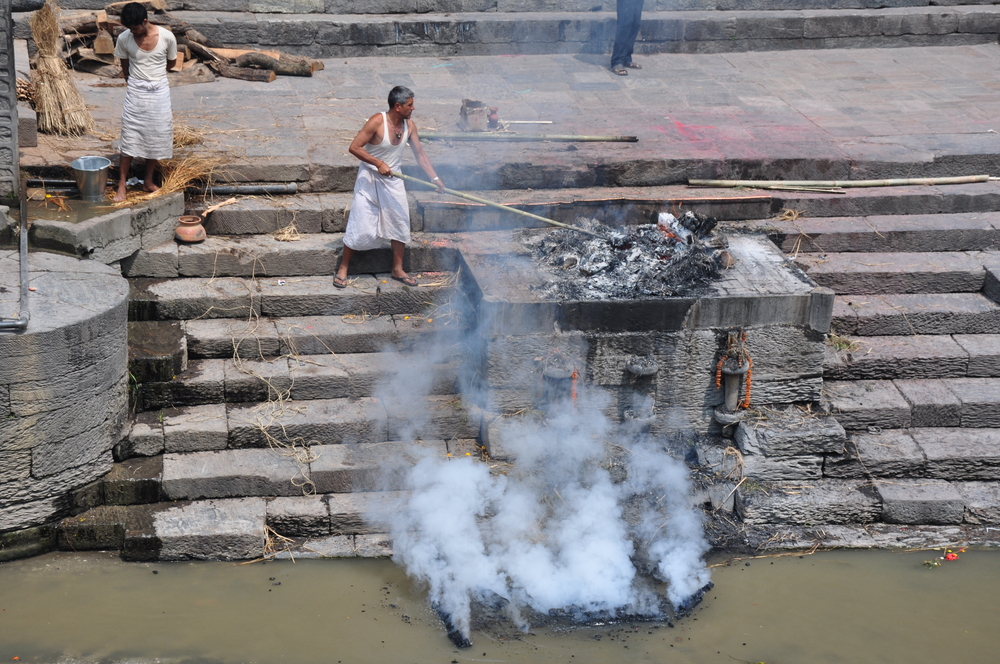Life Stages: Death
In Hinduism, death starts the passage where the immortal soul casts off the worn out body ("as a man casts off his worn out clothes," according to the Gita) in order to be reborn as an embodied soul, until the cycle of rebirth ends through the attainment of Moksha or Liberation.
Religious Rites
Hindus, Buddhists, Jains, and Sikhs cremate their dead, while Muslims and Christians bury them. The Parsis (Zoroastrians) have the unusual custom of leaving the dead body to be devoured by vultures in a place called "Towers of Silence." The one exception to Hindu cremation is the burial of saints (or those regarded as such), whom are buried in a sitting position.
For Hindus, cremation releases the "soul" in its onward journey to another birth. The eldest son lights the funeral pyre and the ashes are immersed in the waters of a holy place.
Muslims utters the sentence lilaha va inna illaha raziun ("We have come from God and unto him we shall return") when a fellow Muslim dies. They bury the body with the head tilted to face the Kaba in Mecca.
Cultural Beliefs
Hindus celebrate the death anniversary, known as Punnyathithee, on the calendar date or according to the constellation of stars on the day of death. Muslims pray for the deceased on the death anniversary, with men alone praying at the tomb and later at home, where all take part in prayer led by a mullah.
Hindus, Buddhists, and Jains believe in reincarnation. For Hindus, Lord Yama is the god of death and justice, presiding over departed souls who have to purify themselves in a purgatory called Naraka (usually translated as "hell") until they are ready to be reborn. The Christian idea of the afterlife is the belief in a heaven and hell. Muslims believe in a paradise where the devout go after death.
Copyright © 1993—2025 World Trade Press. All rights reserved.

 India
India 
